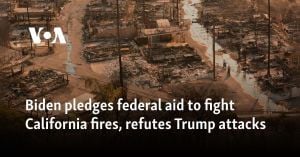Iraq is set to resume oil exports from its Kurdistan region through the Turkish port of Ceyhan, marking the conclusion of nearly two years of disruptions caused by deep-rooted disputes between Baghdad and Erbil.
The Iraqi Oil Ministry announced on Saturday the completion of all necessary procedures to restart exports from the semi-autonomous Kurdistan Regional Government (KRG), aligning with the guidelines of Iraq's OPEC production quota and budget law. Prime Minister Mohammed Shia Al-Sudani emphasized the urgency of restarting the operations, having met with Kurdistan Region President Nechirvan Barzani.
According to Iraq's Oil Minister Hayan Abdul-Ghani, the resumption is expected within a week. This development follows the protracted standoff which saw exports halted since March 2023 after the International Chamber of Commerce ruled against KRG’s independent oil sales, siding with Baghdad's regulation of oil exports.
The controversy began when the KRG opted to export oil through its own pipeline to Turkey, citing delays and withholding of budget transfers from the Iraqi government as the motive. This move was deemed illegal by Baghdad, leading to significant economic fallout. According to experts, the suspension of the exports cost Iraq over $23 billion, compounding economic pressures amid rising tensions between federal and regional authorities.
The re-opening of this pipeline is not only a step toward economic recovery but also reflects shifting political dynamics. Turkish Energy Minister Alparslan Bayraktar previously mentioned uncertainty about the timing of resumed shipments, but now, with the Iraqi parliament approving budget amendments setting the cost of oil extraction and transportation at $16 per barrel, the path appears clear.
On February 17, Hayan Abdul-Ghani stated, “the procedures for resuming the export of oil produced in the Kurdistan Region from the Ceyhan port have been completed.” The directive to begin this transfer highlights the collaboration needed between the KRG and Baghdad, especially with the State Organization for Marketing of Oil (SOMO) overseeing exports.
Despite optimistic statements, there remain concerns surrounding the stability of this resumption. Iraqi officials have issued mixed messages, with Farhad Alaaldin, advisor to the prime minister, denying potential sanctions from the U.S. over delayed oil exports, contrasting with suggestions from Deputy Speaker of Parliament Shakhwan Abdullah about impending economic measures from Washington.
Kifah Mahmoud, media advisor to Masoud Barzani, interpreted the delays as politically motivated tactics to undermine Kurdish autonomy, linking them to broader geopolitical tensions. Nonetheless, he remains hopeful about the imminent restart of oil exports.
Safeen Dizayee, KRG foreign minister, characterized the resumption as pivotal for Kurdistan’s economic rejuvenation. He stated, “All arrangements have been agreed to, with the aim to prepare for re-exports. There shouldn’t be any hiccups. The legal aspects have been met, the technical aspects are in place.” The successful restart is poised to stabilize the region’s economy, particularly concerning the frequently delayed salary payments of Kurdish public sector workers.
Addressing previous concerns about high extraction costs potentially limiting Kurdistan's exports, recent adjustments now accommodate these expenses, thereby incentivizing production leaps necessary for meeting demand.
The two governments appear determined to cooperate moving forward, aligning their interests amid the backdrop of internal and external political pressures. Iraqi officials have expressed optimism about enhancing relations with the KRG, creating potentially more stability for oil markets both regionally and internationally.
With these developments, Iraq strives to reassert its position as a substantial oil-producing nation after suffering substantial financial losses over the last two years. The resumption is expected to provide much-needed relief to the country’s economy, heavily dependent on oil revenues.
This renewed cooperation between Iraq and its Kurdish region highlights the delicate balance of power and the complex nature of resource management within the country. The success of this initiative could pave the way for more harmonious governance going forward, emphasizing mutual benefits over divisive tactics.



